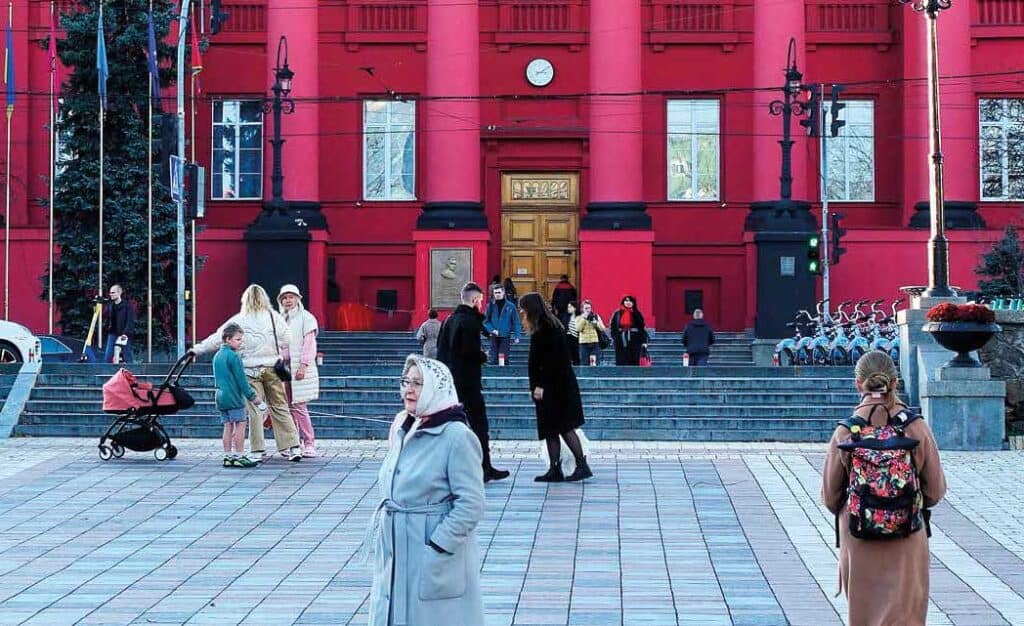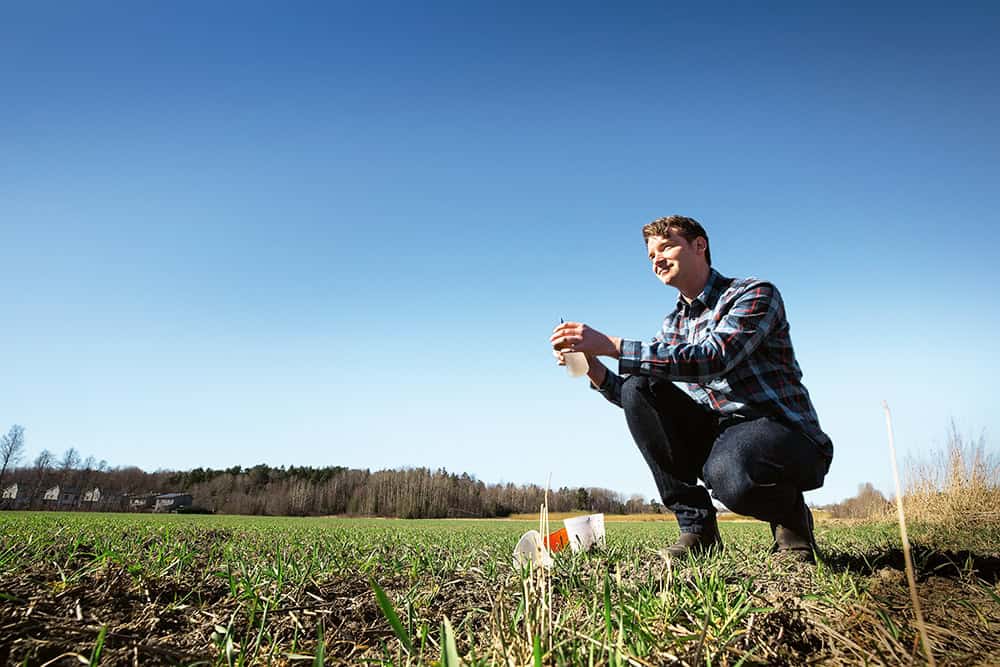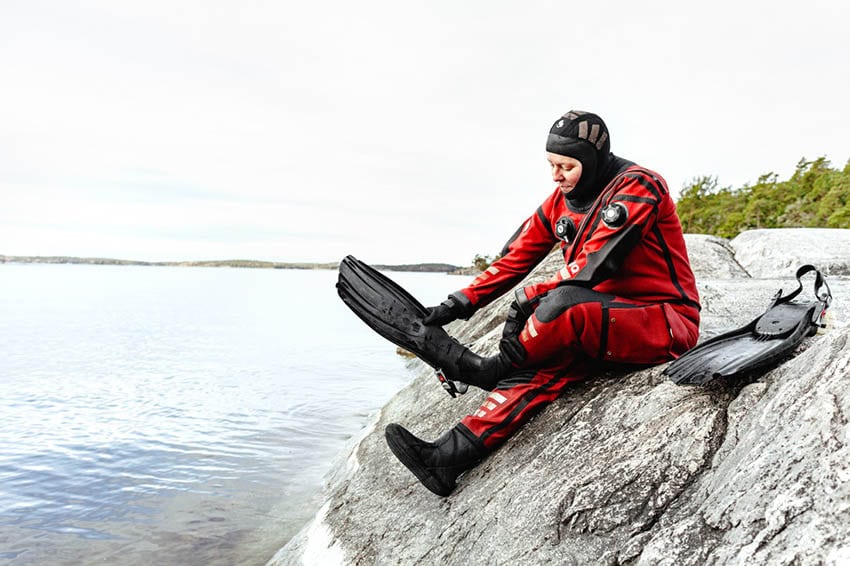Inside Taras Shevchenko National University, also known as Kyiv University, there are no obvious signs that the country is at war. Students holding textbooks move freely along the corridors in lively conversation. This autumn, the university has returned to campus-based teaching instead of online lessons. Everything looks like it is back to normal.
Lilia Miroshnychenko, head of the department of foreign literature, meets Universitetsläraren in a meeting room in the philology department. She says that the teachers and students have adapted well to the circumstances. But it has required increased openness to a changing existence.
“Take today for instance. The air raid siren went off and we were forced to stop all lessons and go down into the shelter. These frequent interruptions mean that we have to plan much more, anticipate the unforeseen and be more flexible in order to achieve the learning objectives for the term.”
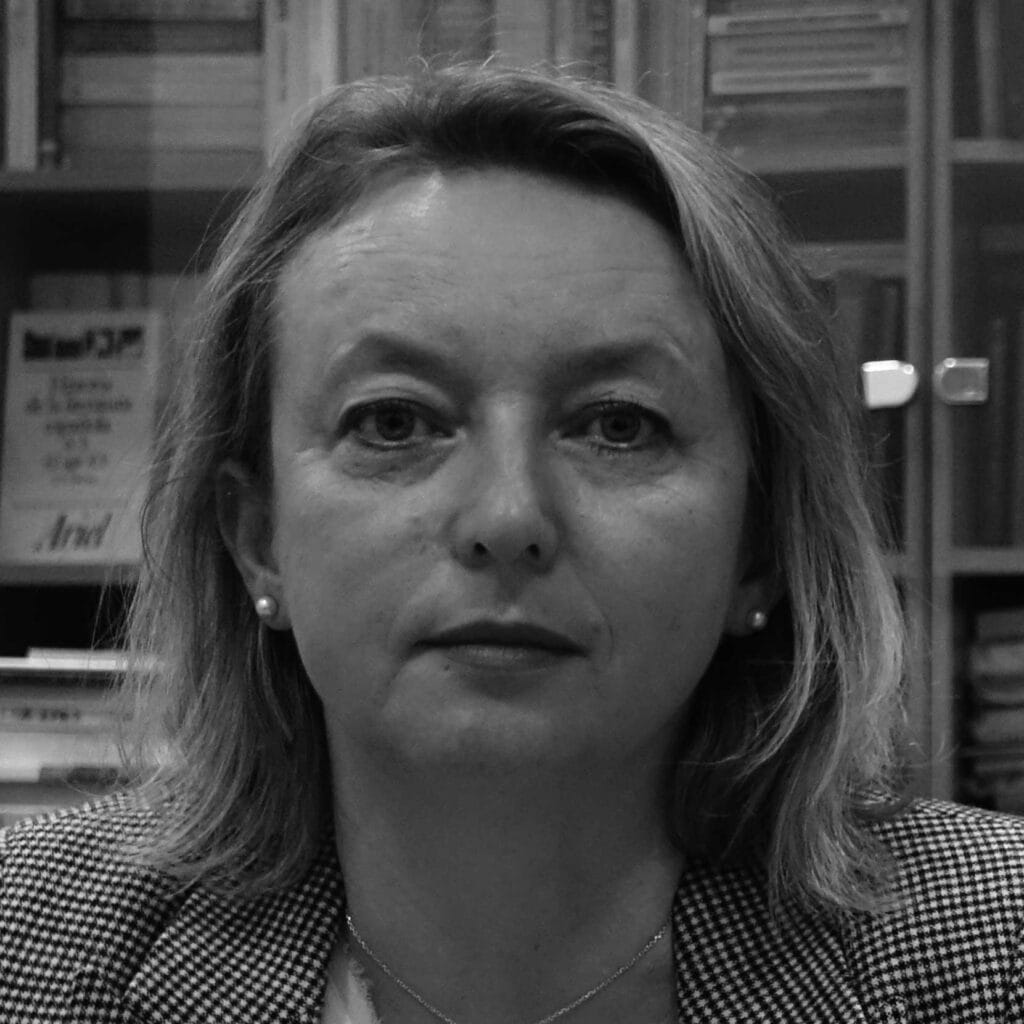
Lilia Miroshnychenko
Head of the department of foreign literature, Kyiv University
The air raid alert is triggered as soon as there is a danger of the city suffering an aerial attack, for example drone attacks or cruise missiles. No one can predict when they will happen or how long the threat will last. Sometimes it is several hours before the all-clear siren sounds. Actual strikes and physical damage have become increasingly rare as the city’s anti-aircraft defences have improved, and most residents of Kyiv now ignore the air raid sirens. But at universities it is mandatory to take them seriously and proceed to the shelters.
“We try to maintain some form of normality, but safety and survival will always come first,” says Miroshnychenko.
A year ago, the situation was considerably worse. Several university buildings sustained significant damage during the first weeks of the invasion, and during an airstrike on 10 October 2022, more buildings were damaged, including the Department of Philology. Miroshnychenko tells us that a missile landed in the middle of the crossroads outside the building. When she came to work the next day, the room we are in was completely destroyed.
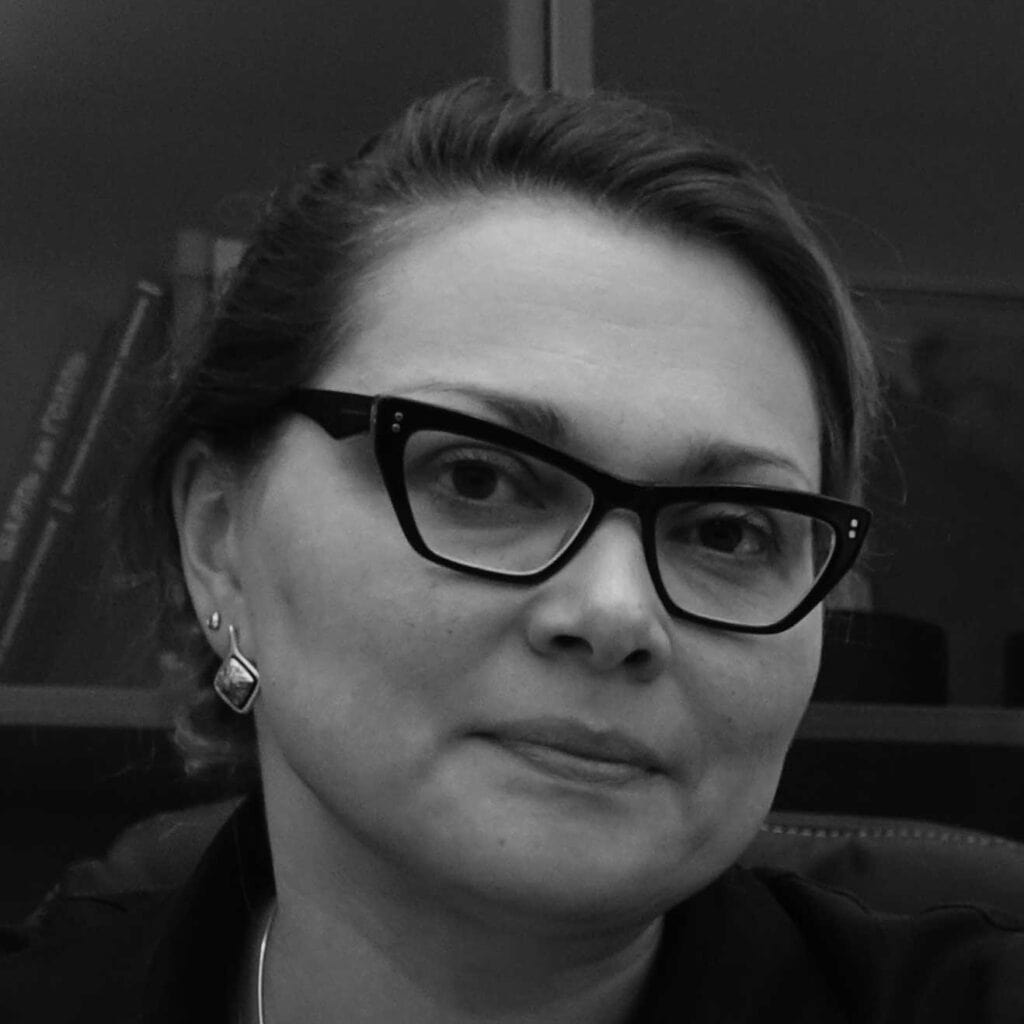
Kseniia Smyrnova
Deputy Vice-chancellor, Kyiv University
Parts of the ceiling had collapsed and the windows were smashed. We just had to get to work and fix it, and now most of it has been restored. But you can still see traces of the explosion on the facade of the building.”
In total, over 700 windows have been destroyed and 15 buildings damaged on the university’s campuses. Repair costs have therefore become an overwhelmingly large expenditure item in an already strained budget, Deputy Vice-chancellor Kseniia Smyrnova, head of international cooperation, tells us.
“The budget that we previously had, and which was supposed to be for things like new buildings and maintenance, was understandably cancelled when the war started and went to the military instead. This means that we struggle with finances. Most teachers’ salaries have had to be reduced. And we have become completely reliant on international support.”
Many employees disappeared after the invasion. Some fled the country and never returned. Others, such as the dean of the university’s history faculty, along with approximately 100 other employees, enlisted to fight in the war. That has made it difficult to fill all the vacancies at the university.
“We have had to make some administrative changes, which means that many people have been given new duties or had to take on more responsibility. But we have also filled some teaching gaps by bringing in more international guest lecturers,” says Smyrnova.
Since the outbreak of the war, several changes to laws regarding the Russian language and Russian culture have been made. In June 2022, the Ukrainian parliament banned Russian music in public. Later, the import and distribution of Russian books was also prohibited. This summer, the city of Kyiv also decided to introduce a temporary ban on all public displays of Russian culture – something that also applies to education.
But Smyrnova explains that this has not impacted activities at the university. “Even before the invasion, we chose to close Russian-language programmes, and we do not have any courses in Russian culture. Russian teachers have been dismissed, though not because of where they come from but because they expressed support for the invasion. That is not compatible with the university’s values.”
Although the university’s activities continue more or less as usual today, it is a stressful existence. Constantly worrying about what will happen and being on the alert for new attacks at any moment is psychologically wearing. It is therefore a major challenge to keep students motivated and to safeguard the mental health of staff, says Dmytro Chomko, a senior lecturer in hydrogeology and chair of Kyiv University’s local trade union association, which is part of the Trade Union of Education and Science Workers of Ukraine.
“We need to try to make sure that employees choose to remain here, make sure that they get paid, that they get enough support and help with their mental health. It’s not only about the fear of new attacks, but also about post-traumatic stress suffered by people who have returned from the front line of the war, lost their homes or have relatives who have been killed.”
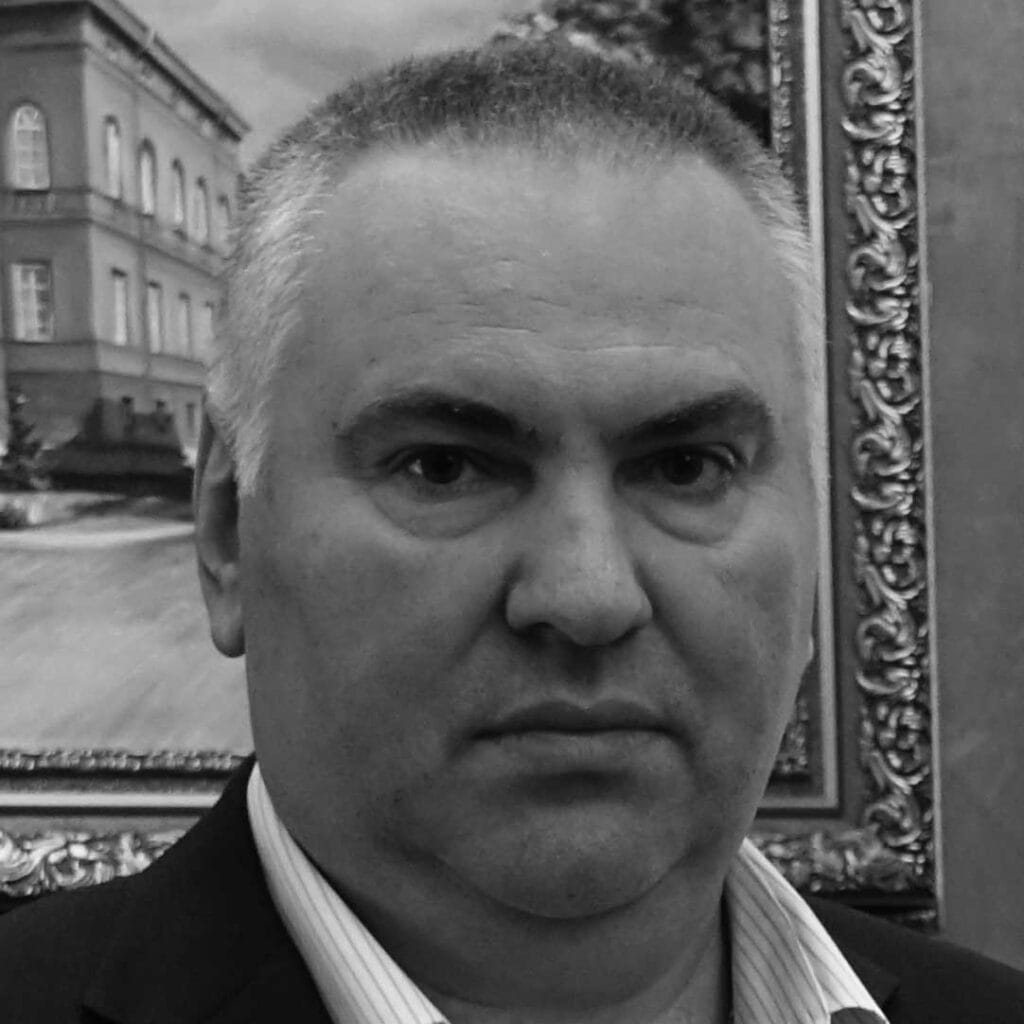
Dmytro Chomko
Chair of Kyiv University's local trade union association
The university has therefore set up an internet-based call centre that both employees and students can contact anytime for psychological support and advice.
The union has also been assisting with humanitarian and financial support since the start of the war, says Chomko.
“We’ve provided emergency help for people who need clothes and food, as well as finding temporary accommodation for internally displaced people. We’re now focusing on members who have gone to the front, for example by helping them to provide for their families and paying compensation to the families of members who have been killed.
The Russian invasion began just as the country was bringing the corona pandemic under control. The Ukrainian people therefore did not have much time to rest between disasters. But some of the experiences of the pandemic were also beneficial. For example, routines for distance learning were already in place when the war began, says Chomko.
“When covid came, we thought we had been hit by the worst possible scenario. It was a virus that put the whole world out of action. Then the war broke out, which no one had thought possible. Many people were afraid and confused at first. But now we are all stronger and more united.”
The war is taking its toll on education in Ukraine
Russia’s war of aggression against Ukraine has put a huge strain on the education system.
- Since the outbreak of the war on 22 February 2022, 3,798 schools, including 117 in Kyiv, have been damaged and 365 completely destroyed. These figures include everything from preschools to universities.
- Approximately 24,000 teachers – including university teachers – left Ukraine after the invasion. The majority of these have now returned. However, several thousand university teachers and administrative and technical staff remain abroad.
- A basic requirement for returning to full-time education on site during the war is that the school has access to bomb shelters that can accommodate all staff and students, which 84 per cent of Ukraine’s schools currently have. Other schools need to continue with online teaching.
Source: Trade Union of Education and Science Workers of Ukraine.
